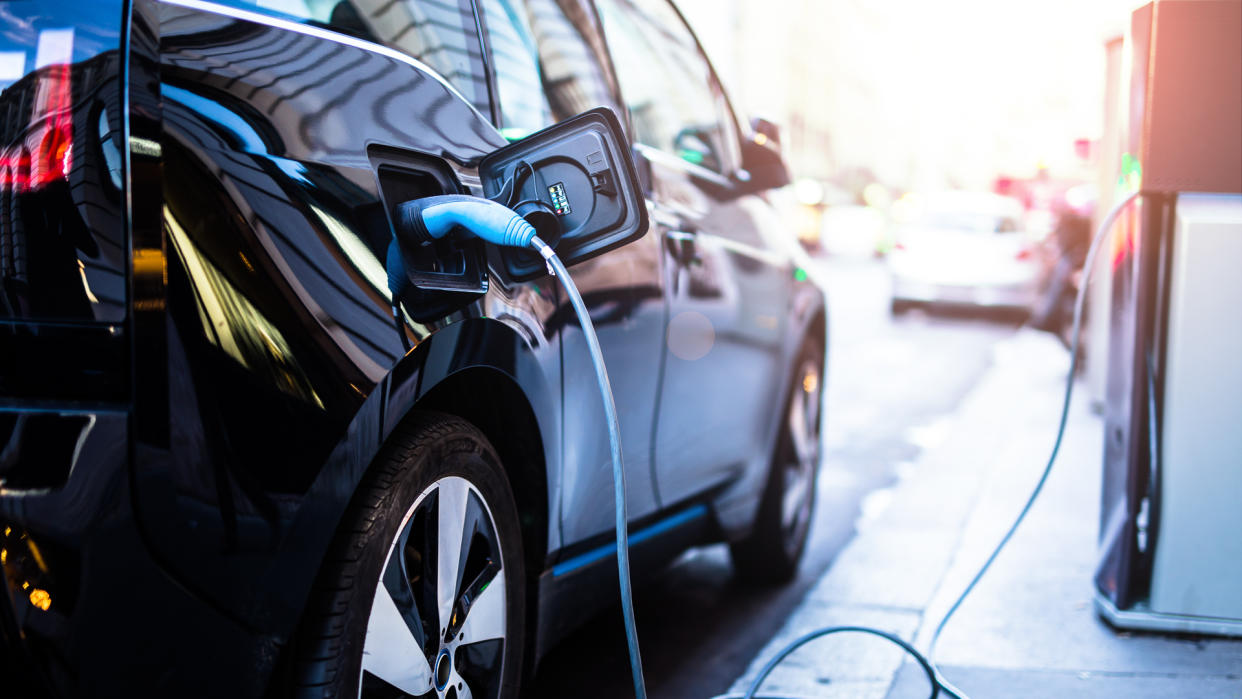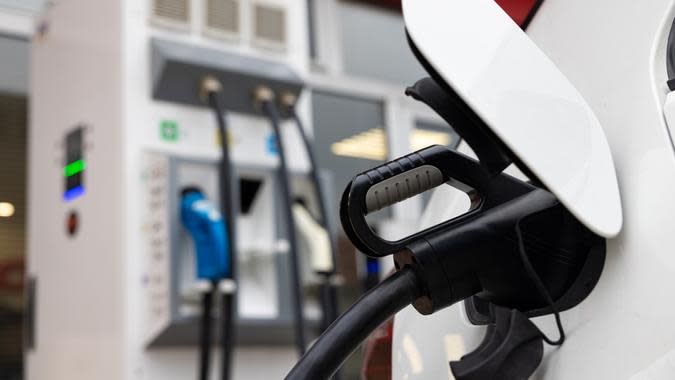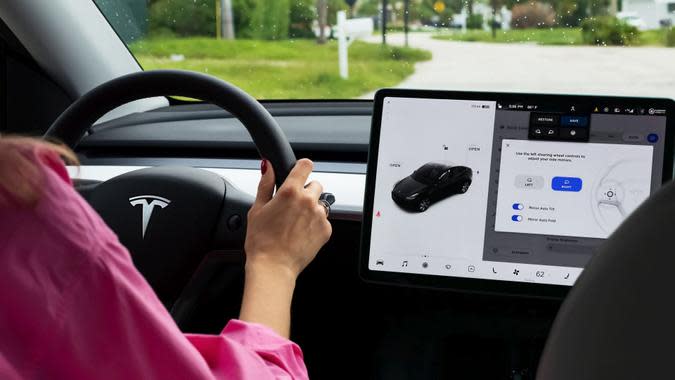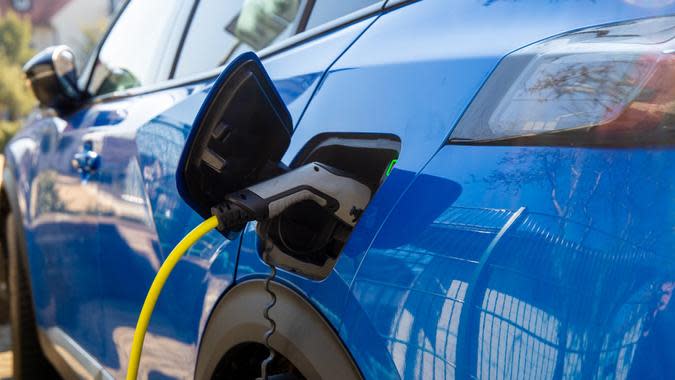7 Reasons Your Tax Refund Should Be Put Toward an Electric Vehicle

If you're one of the lucky ones who gets a tax refund, it's tempting to spend that cash on fun stuff like travel, leisure or dining out.
Good Question: What Is the Standard Deduction for People Over 65 in 2023?
FICO Fix: 3 Signs You're Serious About Raising Your Credit Score
While there's nothing wrong with treating yourself, it may be wise to consider sinking your tax refund into something that will have a lasting impact on your finances, the environment, and the way you drive -- an electric vehicle (EV).
Here are seven reasons why you should put your tax refund into a new EV.

Reduced Prices
Now might just be the perfect time to invest your tax return in an EV, according to Scott Case, CEO and co-founder of Recurrent Auto.
"The combination of falling vehicle prices and expanded tax credits for both new and used EVs are making it easier to go electric in 2023. Tesla, Ford and Chevrolet have already reduced new EV prices in the last 3 months, and used EV prices are down 17% from their peak in July 2022, with roughly 30% of used EVs eligible for a used car tax credit of up to $4,000. That's a huge deal for car buyers this year."
Take Our Poll: What Do You Plan To Use Your Tax Refund For?

Tax Advantages
If lower prices aren't incentive enough, as part of the Inflation Reduction Act, the Biden administration is giving very generous incentives for EV and hybrid purchases this year, says Robert Tomkinson, VP of Marketing at CoPilot, a car shopping app.
"Get them while you can. Some states have added incentives. Put this together with solar panels and a storage battery, and you can get massive discounts (credits or rebates) to help fuel your EV as well as your home."

Environmental Benefits
If money isn't your main driving factor, consider that EVs are better for the environment in the long run. Though there are some pollutants associated with making and disposing of the cars' batteries, if you compare the lifetime emissions of an EV to a regular gasoline-powered car, the greenhouse gas emissions associated with both types of car are significantly lower for an EV.
Tomkinson points out that the benefits of EVs affect both your local air quality -- by not pumping out toxic exhaust fumes and particles -- and the global climate, by not pumping out greenhouse gasses.

Reduce Noise Pollution
A less commonly considered issue associated with regular internal combustion engine (ICE) cars is their huge contribution to noise pollution. How many times has a revving vehicle ruined your peaceful evening, walk or dinner out? Tomkinson points out that EVs "run very quiet, so that's better for noise pollution."

Save Money on Gas
The U.S. has seen some starkly high gas prices in the last couple of years, making gas savings a great motivation to invest in an EV. "Gas savings really depends on where you live, of course," says Joseph Nagle, of Orange Charger, an EV charging company. "On average in the U.S., EV drivers can look to save roughly $1,000 per year on gas. However, if gas prices spike, which they're known to do, then the savings are obviously far greater."
Tomkinson adds that even if you have to pay for your electric charging (rather than having a home charger), it is likely to cost about 1/3 as much as filling up with gasoline. "If you have solar at home, or your place of work, you can fill up for free. That can easily save the average driver $1600/year at 12,000 miles driven per year. You're doing well if you can average 30 MPG. And at $4/gallon, that's $1,600 on gasoline you could save per year."

Save Money on Maintenance
Some of the hidden benefits of an EV include less maintenance, as typically EVs cost about $300 less per year to maintain, says Nagle. "At times these savings can be quite high when looking at brake replacements for example. EVs use their motors to slow the vehicle down (referred to as regenerative braking). This not only helps save on energy but also can help brakes last far longer."
They are also cheaper to maintain because an EV has fewer moving parts in its powertrain and drivetrain, meaning most of the components require less attention in terms of maintenance, says Matas Buzelis, President of the Association of Automotive Intelligence and an automotive expert at carVertical. "There can't be any oil or fuel leaks because there are no such things on the EVs."

More Charging Stations
Even a few years ago there may not have been enough EV charging stations, but that is changing, according to Gilbert Michaud, PhD, an Assistant Professor of Environmental Policy at the School of Environmental Sustainability at Loyola University Chicago.
"States are rapidly expanding access to electric vehicles and charging stations, especially in historically and economically disadvantaged communities. For instance, here in Illinois, we have a goal of putting one million electric vehicles on the road by 2030. The headline incentive to drive this increase is a maximum of $4,000 rebate for Illinois residents who purchase an electric vehicle from an Illinois dealer. When combined with federal legislation, the total tax incentive could be well over $10,000."
If you can think beyond the thrill of a big tax return in your bank account, you might see than an electric vehicle is the best investment you could make right now.
More From GOBankingRates
This article originally appeared on GOBankingRates.com: 7 Reasons Your Tax Refund Should Be Put Toward an Electric Vehicle
